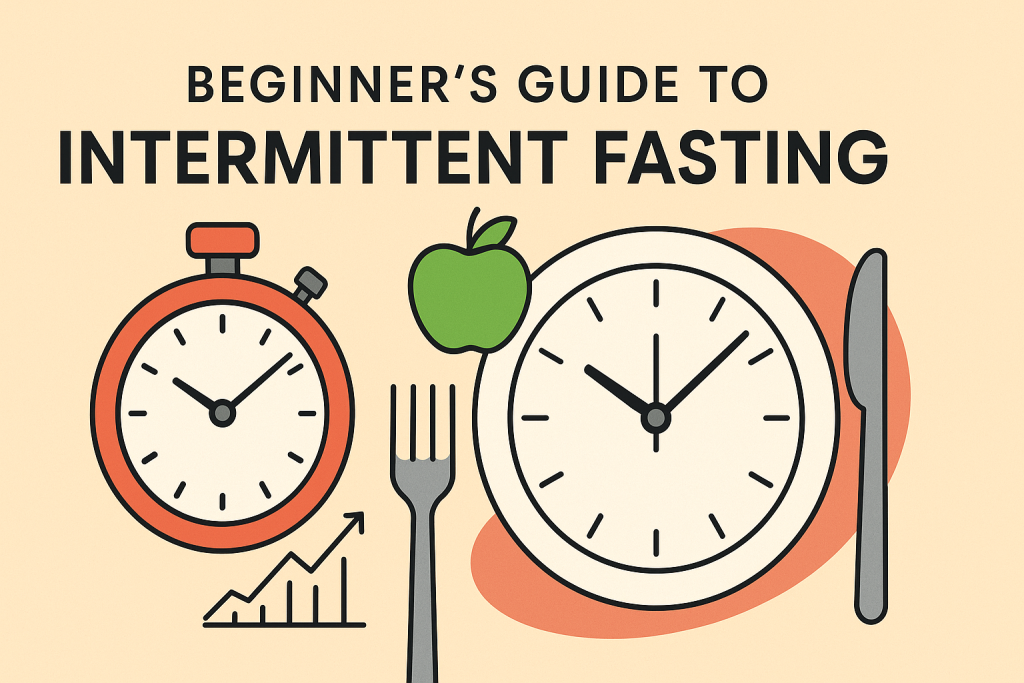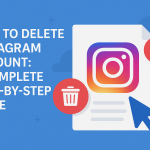Have you heard about intermittent fasting and wondered how it can help you shed pounds or boost your metabolism? You’re not alone. Intermittent fasting has gained massive popularity in recent years due to its simplicity and impressive results. But how do you get started, especially if you’re a beginner? This guide walks you through everything you need to know to begin your fasting journey safely and effectively.
What Is Intermittent Fasting?
Intermittent fasting (IF) is an eating pattern that cycles between periods of fasting and eating. Unlike traditional diets, IF focuses more on when you eat rather than what you eat. The goal is to extend the time between meals so your body can burn more fat and regulate its metabolic processes more efficiently.
Popular Intermittent Fasting Methods
- 16/8 Method: Fast for 16 hours and eat during an 8-hour window each day.
- 5:2 Diet: Eat normally for 5 days a week, and restrict calories (500–600) on 2 non-consecutive days.
- Eat-Stop-Eat: Fast for 24 hours once or twice a week.
- Alternate Day Fasting: Alternate between days of normal eating and days of fasting.
Why Try Intermittent Fasting?
People try intermittent fasting for various reasons. Here are some evidence-based benefits:
- Boosts metabolism: Fasting promotes hormone changes that enhance fat burning and metabolic rate.
- Supports weight loss: By restricting your eating window, you naturally consume fewer calories.
- Improves insulin sensitivity: Helps regulate blood sugar and reduce the risk of type 2 diabetes.
- Promotes cellular repair: Fasting initiates autophagy, a process that repairs damaged cells.
- May increase longevity: Some studies suggest fasting could extend lifespan and improve brain health.
Is Intermittent Fasting Safe for Everyone?
Intermittent fasting is generally safe for healthy adults, but it may not be suitable for everyone. Pregnant or breastfeeding women, people with a history of eating disorders, or those with certain health conditions should consult a healthcare professional before starting any fasting regimen.
Getting Started: Step-by-Step Guide for Beginners
1. Choose the Right Fasting Method
For most beginners, the 16/8 method is the simplest and easiest to stick with. You could, for example, eat between 12 pm and 8 pm and fast for the remaining hours.
2. Ease into Your Schedule
Jumping straight into longer fasts can be tough. Start by delaying breakfast by an hour or two each day, gradually increasing your fasting window. This helps your body adapt without shock.
3. Stay Hydrated
During your fasting window, you can (and should) drink water, black coffee, or unsweetened tea. Staying hydrated helps reduce hunger pangs and keeps your metabolism running smoothly.
4. Make Healthy Food Choices
While IF doesn’t prescribe what foods to eat, focusing on whole, unprocessed foods during your eating window amplifies the benefits. Favor lean proteins, vegetables, healthy fats, and complex carbohydrates.
5. Listen to Your Body
It’s normal to feel some hunger initially, but you shouldn’t feel dizzy, faint, or excessively weak. If you do, break your fast and consult a professional.
Tips to Succeed with Intermittent Fasting
- Start slow: Gradually increase your fasting period.
- Meal prep: Plan your meals in advance to avoid unhealthy snacking.
- Stay busy: Keeping occupied helps distract you from hunger.
- Track progress: Use a journal or app to record fasting times and how you feel.
- Get enough sleep: Rest helps regulate hunger hormones and supports weight loss.
Understanding the Science: How IF Boosts Metabolism
Intermittent fasting triggers several changes in your body that enhance metabolism:
- Increases norepinephrine: This hormone boosts fat breakdown and energy use.
- Reduces insulin levels: Lower insulin means your body can access stored fat more easily.
- Enhances human growth hormone (HGH): Higher HGH supports fat loss and muscle gain.
- Promotes autophagy: This cellular repair process can improve overall health and metabolic function.
Common Intermittent Fasting Mistakes to Avoid
- Overeating during eating windows: IF isn’t an excuse to binge; portion control is still key.
- Choosing unhealthy foods: Junk food negates many of the benefits of IF.
- Fasting for too long: Excessively long fasts can backfire and cause fatigue or nutrient deficiencies.
- Ignoring hydration: Dehydration can lead to headaches and sluggishness.
Frequently Asked Questions About Intermittent Fasting
Can I drink coffee during fasting?
Yes, black coffee and unsweetened tea are generally allowed and can help suppress appetite during your fasting window.
Will I lose muscle on intermittent fasting?
When done correctly and combined with resistance training and enough protein, IF can help preserve muscle mass while promoting fat loss.
How long does it take to see results?
Results vary, but many people notice changes in energy levels and appetite control within a week. Visible weight loss usually occurs within a few weeks.
Conclusion: Embrace a Healthier, More Efficient You
Intermittent fasting is a flexible, science-backed approach to boosting your metabolism and achieving long-term health goals. By starting slowly, staying hydrated, and making healthy food choices, beginners can seamlessly integrate IF into their lives. Remember: consistency is key, and listening to your body is paramount. Begin your intermittent fasting journey today and enjoy the many benefits it offers!


